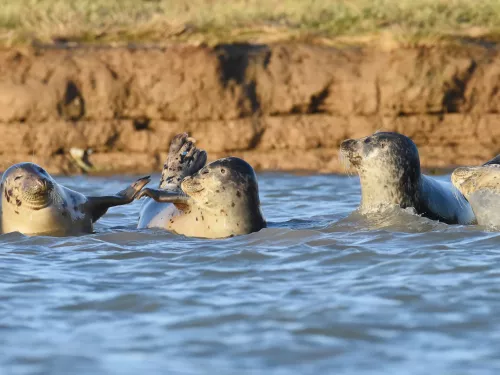
How to watch seals safely
Seals can be disturbed if people or dogs get too close, cause too much noise, or startle them. Disturbance can happen from the land, sea, and air - so we need to watch them with caution.


Seals can be disturbed if people or dogs get too close, cause too much noise, or startle them. Disturbance can happen from the land, sea, and air - so we need to watch them with caution.